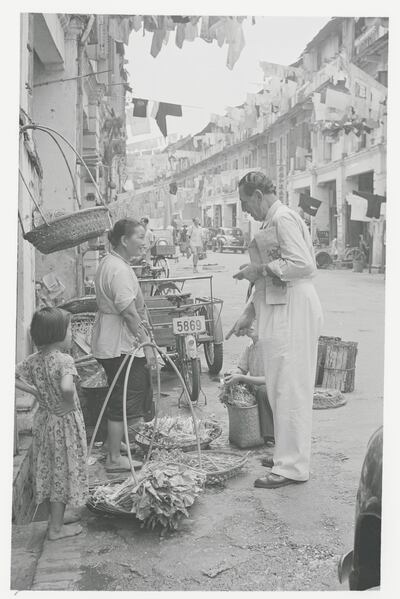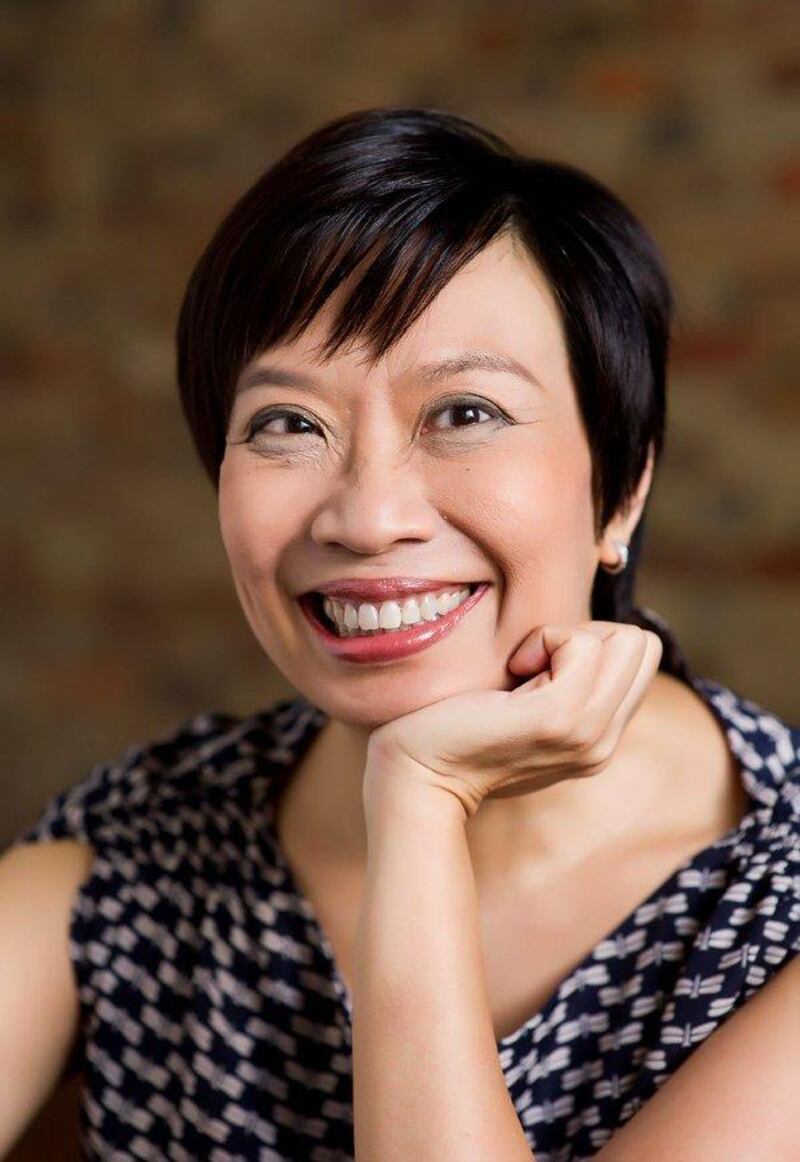Whenever Ovidia Yu completes a book, she buys an orchid for the patio garden at her home in Singapore. So far there are four flowers, including a small bloom she bought after finishing a short story. "It is something to remember them by. I am not very good with plants, and I am learning as I go along. Same with writing. You keep everything going, everything alive."
This literary hothouse barely scratches the surface of Yu's body of work. "I only began a few books ago," she admits. There are already four instalments of Yu's popular and enormously enjoyable "Aunty Lee" crime series (including the new episode, Meddling and Murder), set in contemporary Singapore and starring her culinary-wiz-turned-amateur-sleuth protagonist. Her writing for the theatre is even more impressive, spanning three decades and no less than 24 plays.

In conversation, the 56-year-old offers a fair approximation of her work – lively and erudite, unfailingly modest yet self-confident, as when she explains her distrust of interviews: "It is probably an impostor syndrome. I do not think I have anything interesting to say. Everything I want to say I have said in the writing. If we need to talk, I have failed, or you are looking for something more that does not exist."
Yu's newest piece of writing is The Frangipani Tree Mystery, the first in a new series is set in Singapore in 1936. Her heroine is Su Lin, an unassuming but brilliantly observant young Chinese-Singaporean who is drawn into a murder mystery involving the bumptious British governor, Sir Henry Palin.
His daughter's nanny is found dead in suspicious circumstances underneath the titular Frangipani tree.
Like Aunty Lee's mysteries, Su Lin's Crown Colony series has been filed by its publisher under "cosy mystery" – a genre whose crimes are frequently soft-boiled by cats, cakes, cups of tea and a cast of mild eccentrics.
It is not hard to understand why Yu fits the cosy brief. Witness her skill at fleshing out elegantly constructed plots and succulent atmospherics with complex but likeable characters. In the case of Frangipani Tree, Yu's research yielded a cast almost too colourful to be true. Her Holmesian detective, Thomas Le Froy, was based upon Rene Onraet, the actual inspector-general of the straits settlements police before the war. "He did all these crazy things. He went undercover. He could pass as an Indian better than he could as Chinese because of his features. He pulled a rickshaw. He kept warning the British government that the Japanese are sending spies to Singapore. As it turned out, he was right."
The equally lively Miss Sophia Blackmore inspired Nessa Palin, the governor's sister who helps run the Anglican Mission School. "She actually chased the Japanese [invaders] away with an umbrella because they were trampling the vegetables in her garden. Instead of shooting her, the Japanese officer gave her a chicken. There are incredible, wonderful stories. But if I make them all fiction, I can actually do a lot more."
For Yu, such unmistakably charming characters allowed her to explore graver issues. Su Lin flouts all manner of racial and gender stereotypes. Nessa Palin "would probably have made a much better governor than her brother. She manages things, she runs everything but she is not even considered. In a way the injustice has been done to her."
Indeed, Yu argues, the best "cosies" reveal "injustices that would not otherwise be brought to light". When I ask if any one inequality defines The Frangipani Tree Mystery, Yu laughs. "It is hard to say to a white person, but it is colonialism, is not it?" While the novel and its creator describe the unequivocal ills of British rule, they filter them through a sympathetic outlook. "The British came in and, yes, said we were all uneducated savages and should all become Christian. But they built hospitals and roads and tried to give people fresh water. Of course they were trying to make money for the crown from rubber and tin. They were trying to be nice to the animals, even if they saw us as animals." Such equanimity is one of Yu's defining points. When I ask about the state of women's rights in Singapore, she says: "Not much worse than the state of men's rights in Singapore right now, so in a sense pretty good. Because when there is no sharp contrast it does not hurt so immediately."

Writing for a living was always a deeply held ambition for Yu, who fell in love with theatre as a child, winning small acting roles. "A munchkin in the Wizard of Oz. One of the king of Siam's 500 children in The King and I," she says with a laugh. "My parents were quite encouraging. As long as I did OK at school, I was allowed to do what I wanted most of the time."
A career as a doctor beckoned when Yu was awarded a highly competitive scholarship to study medicine. "Being Singaporean and kiasu [ambitious], you apply for the hardest thing to get into. That was medicine." Her subsequent decision to quitand realise her literary ambitions, was controversial enough for the Singaporean prime minister to make an angry telephone call to her father. "It was quite horrible of me to drop out," Yu admits:– she wasted one of the few study places then offered to women. "But it was worse had I gone through with it, and accidentally killed people because I was not paying attention. This way if I write a book badly, nobody dies."
Yu supported her early, experimental plays with commercial copywriting. "It was not very respectable, but it was super training. You have to think, 'what are they trying to say and who are they saying it to?'" It is noticeable that while Yu's scripts are often startling dramatically (sudden shifts of perspective or character) and politically pointed (typical themes include women's rights, body issues, misogyny, motherhood), her writing is consistently entertaining and extremely funny. "I am not making fun of the issues. I take them seriously. But you do not have to be ugly to make a serious point. It is not sugar-coating, it is lubricating the idea so you can slide it in and say what you want. It goes back to not attacking people up front. They are not enemies."
This balancing of light and dark sounds eerily similar to Yu's later cosy mysteries. Whatever the medium or the series, it seems that writing serves the same fundamental purpose – for Yu to express her private dissatisfactions with the world around her.
"For a while it was easier to get angry about things and write on Facebook. It does not do any good. I still go on at least once a day, but I write how angry I am into a novel. I cannot make it come right in real life, so I put the resolution in the book. That satisfies something inside."





